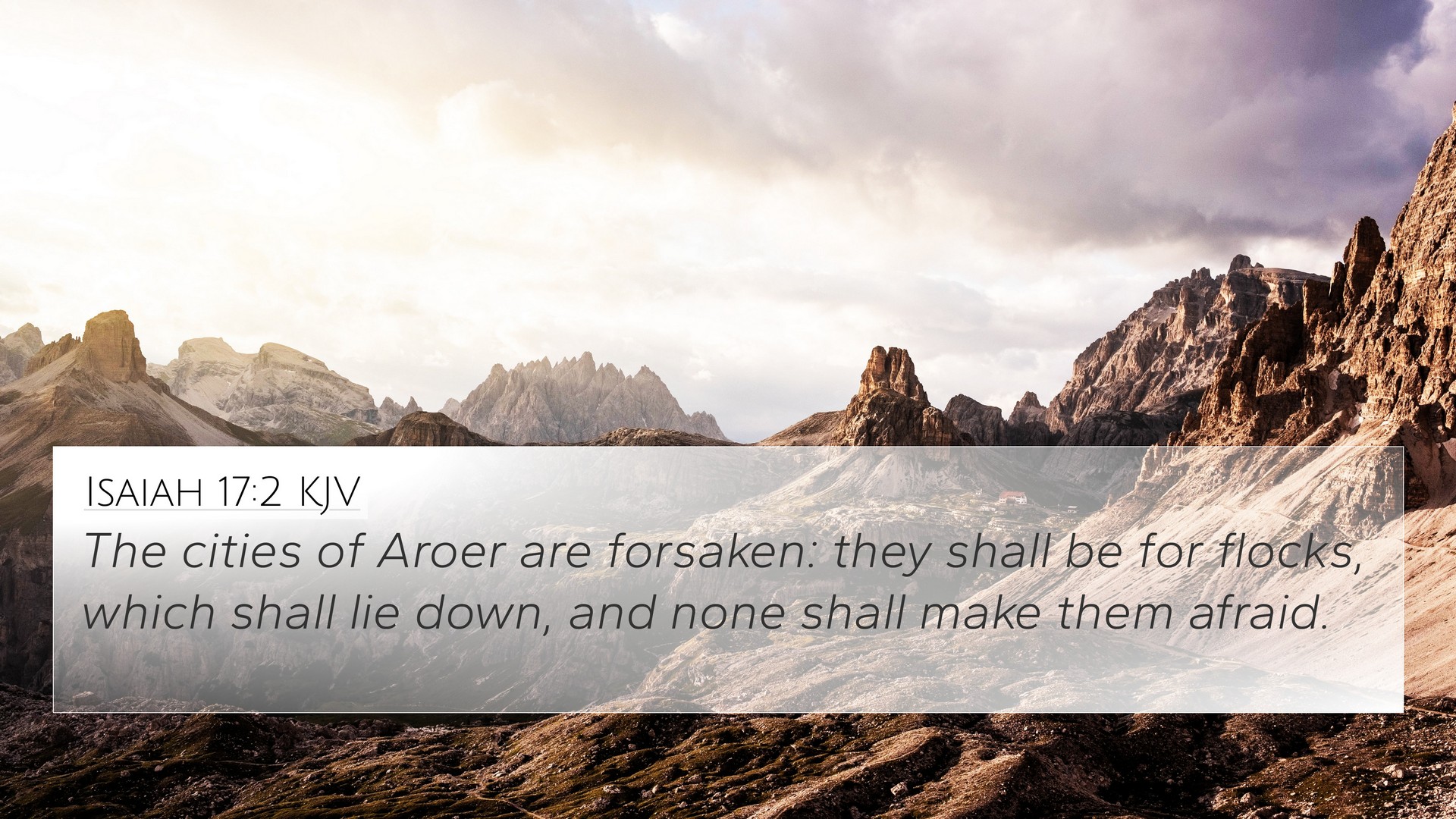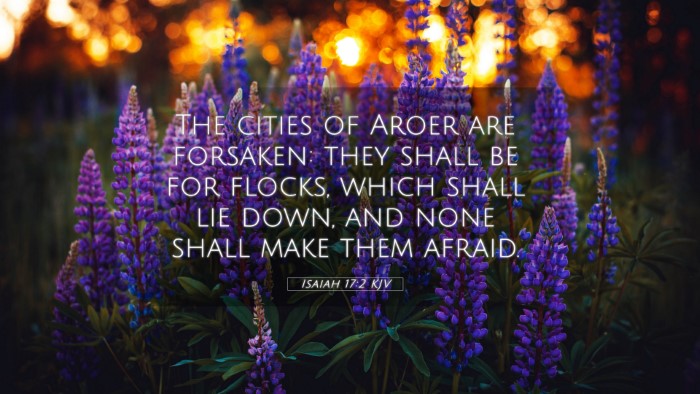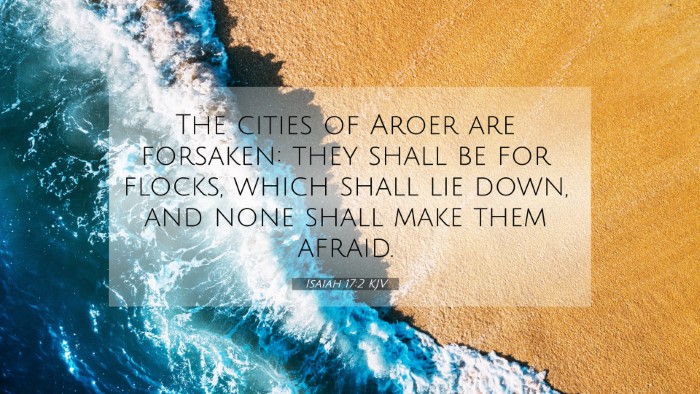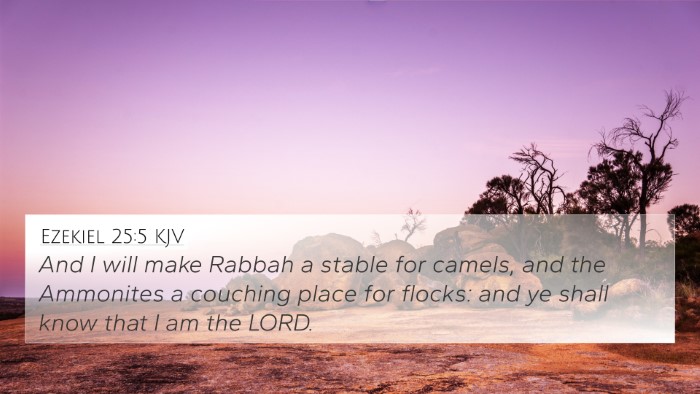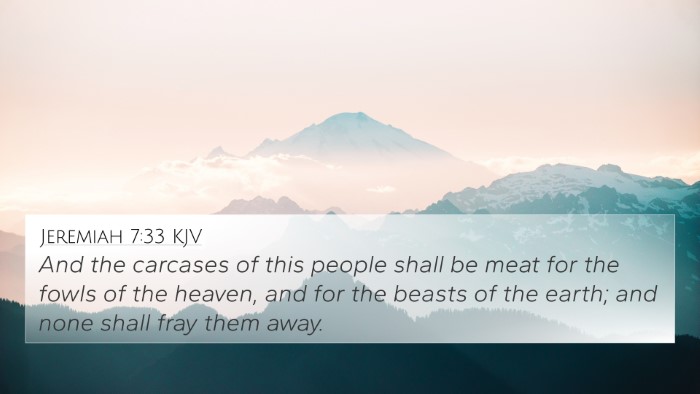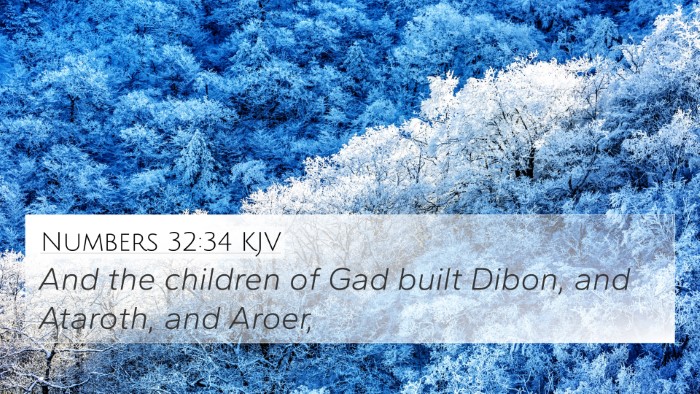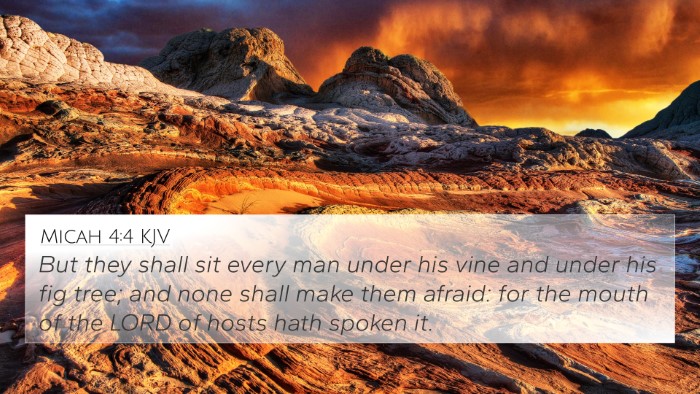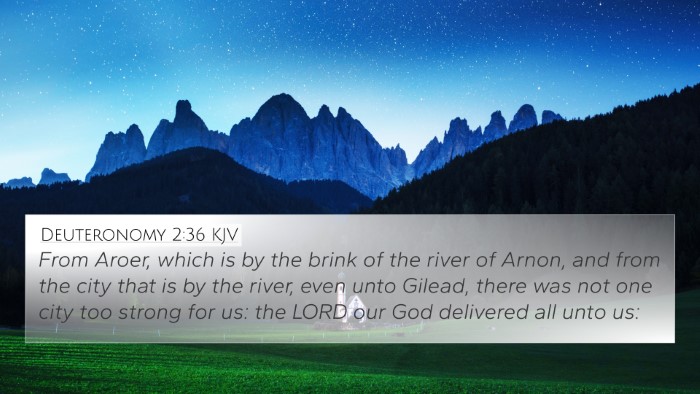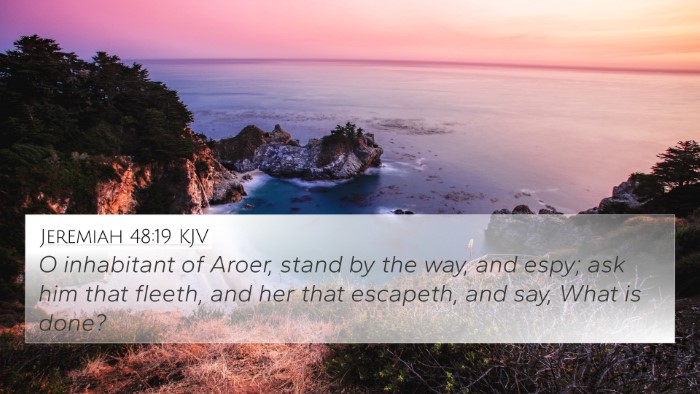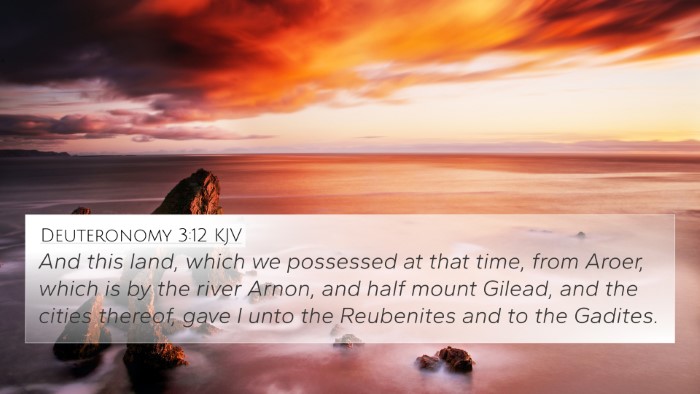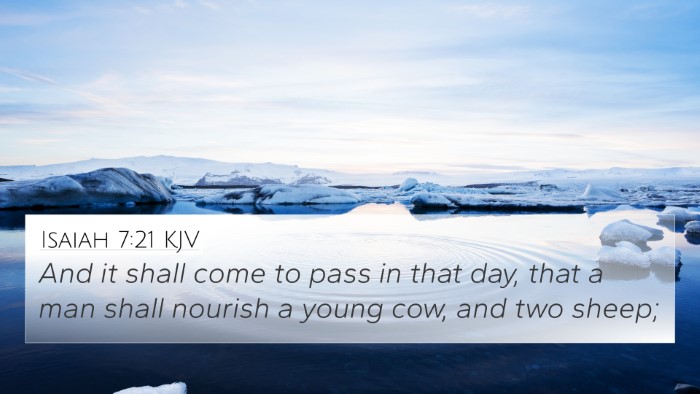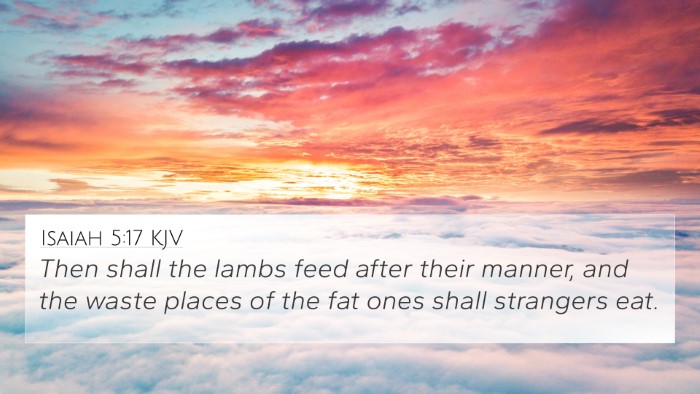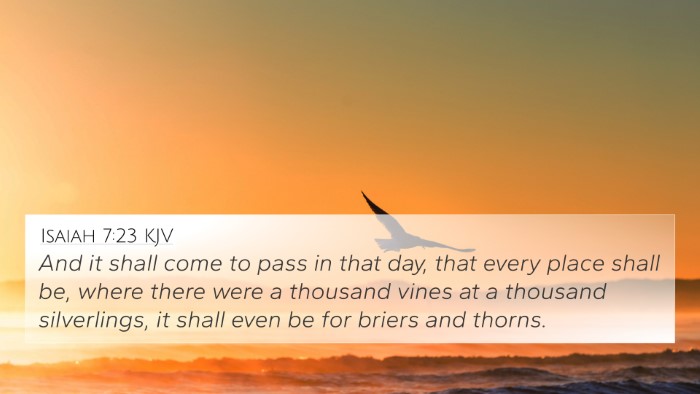Understanding Isaiah 17:2
Isaiah 17:2 (KJV): "The cities of Aroer are forsaken: they shall be for flocks, which shall lie down, and none shall make them afraid."
Overview of the Verse
The verse Isaiah 17:2 speaks about the desolation of the cities of Aroer, indicating a shift from populated urban centers to areas that will serve as grazing lands for flocks, devoid of fear and danger. This transformation portrays God's judgment against the nations and highlights a future restoration symbolized by peace in desolate places.
Commentary Insights
Matthew Henry's Commentary
Henry emphasizes the prophetic nature of Isaiah's words, reflecting on the abandonment of cities once filled with life. The forsaking of Aroer signifies not just physical desolation but also the spiritual ramifications that result from turning away from God. The peace indicated by flocks grazing without fear suggests a future era of safety and divine protection for those who trust in the Lord.
Albert Barnes' Commentary
Barnes interprets this desolation as a consequence of God’s judgment on Syria. The forsaking of these cities leads to a natural reclaiming of the land by flocks, illustrating how God's judgment transforms environments. He notes the significance of the absence of fear and danger, highlighting God's ability to bring about peace after judgment has taken place, thus offering hope to those who rely on divine providence.
Adam Clarke's Commentary
Clarke provides additional context, noting that Aroer, situated by the Arnon River, symbolizes a broader geographical understanding of the impacts of war and destruction. His commentary highlights God's intention to restore what was lost, allowing for a new era where animals can inhabit lands without fear, symbolizing divine mercy and the eventual restoration to peace and tranquility.
Bible Cross-References
Isaiah 17:2 connects with several other Scriptures that reflect on themes of desolation, judgment, and eventual restoration. Below are key cross-references:
- Isaiah 13:20: Describes cities becoming desolate and uninhabitable due to God’s judgment.
- Jeremiah 4:27: Speaks of the desolation of cities as a result of God’s wrath.
- Ezekiel 25:5: A prophecy regarding the desolation of Ammon, akin to that of Moab.
- Zephaniah 2:15: Details the consequences of pride leading to desolation.
- Isaiah 65:25: Prophetic imagery of peace in the new creation, where animals dwell without fear.
- Lamentations 1:1: A poetic lamentation on the state of desolate Jerusalem.
- Romans 8:19-21: The longing of creation for restoration from the curse, paralleled with Isaiah's vision of peace.
Analysis of Thematic Connections
Thematically, Isaiah 17:2 can be linked to a broader narrative of God’s sovereignty over nations and creation. The process of destruction leading to restoration can also be seen as a pattern throughout scripture, where God allows situations to unfold that bring about His ultimate purposes:
- Restoration Themes: Linking to passages like Revelation 21:4, which speaks of God wiping away all tears and restoring peace.
- Divine Judgment: Echoes throughout the Minor Prophets, notably in Nahum 1:8, which describes God’s judgment on cities.
- Peaceful Reigns: The imagery of flocks lying down alludes to a Messianic peace, as seen in Isaiah 11:6.
Scriptural Cross-Referencing Tools
Understanding the connections between these verses enhances the study of scripture. Tools like a Bible concordance or Bible cross-reference guide can be incredibly helpful:
- How to use Bible cross-references: Identifying verse relationships enhances understanding of theological concepts.
- Cross-reference Bible study: Methods of incorporating multiple scriptures to build thematic studies.
- Bible cross-reference system: Utilizing systematic approaches to find connections between differing biblical texts.
Inter-Biblical Dialogue
This verse becomes a point of inter-Biblical dialogue, where connections between the Old and New Testaments create a deeper understanding of God's redemptive plan. Studying how New Testament teachings reflect on the prophecies of Isaiah provides insight into the continuity of God’s message:
- Romans 15:4: Encourages believers to find hope through the scriptures, which includes Isaiah’s prophecies.
- Hebrews 12:22-24: Offers the promise of a kingdom of peace, resonating with the peace offered in Isaiah's prophecy.
Conclusion
Isaiah 17:2 serves as a powerful reminder of God's judgment and mercy as He transforms desolation into a place of safety and peace. As we study this verse alongside cross-references, we gain a richer understanding of the narrative woven throughout Scripture. The connections between these verses not only illuminate the text but invite us to dwell on the overarching themes of judgment, desolation, and the promise of restoration through faith.
